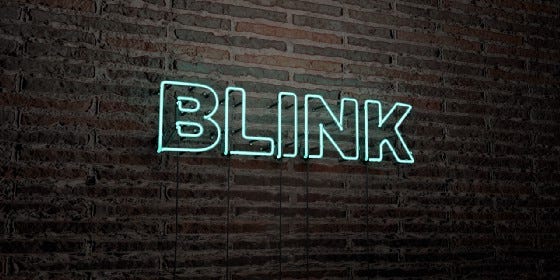How I transformed from thinking my brain was broken to realizing I had a superpower
Malcolm Gladwell’s book “Blink” changed my life.
I am a quintessential “thin-slicer,” a personality trait that Malcolm Gladwell thoroughly explored in his book, Blink.
Thin-slicing describes a person’s ability to find patterns in events based only on “thin slices,” or narrow windows, of experience. The most interesting aspect of thin-slicing to me is that thin-slicers’ conclusions can be as accurate, or even more accurate, than judgments based on significantly more information. Thin-slicers can provide rapid inferences about the state, characteristics, or details of an individual or situation with tiny amounts of information.
Thin-slicing is effectively a super, highly honed, very accurate instinct. All good, right? Where could this possibly go wrong? Turns out, lots of places.
In technology, the ability to thin-slice can be an incredibly powerful problem-solving tool when it is recognized for the incredible positive it can be, and not punished as a bad thing that should be eliminated.
Before Malcolm Gladwell’s book came out, I didn’t even KNOW there was a label for this aspect of my personality, much less it seeing it framed as a good thing.
Here’s what I heard instead:
You don’t listen.
You are rude.
You jump to conclusions.
You can’t have possibly considered all of the data before chiming in with your opinion.
You are a know-it-all (or its variant “you are always trying to demonstrate you are the smartest person in the room”).
Then I read Blink and realized all these things I had been told repeatedly since I was in 4th grade about how my brain processed data, usually characterized in very condescending and negative terms, was literally the result of the unconscious bias that non-thin-slicers bring to their opinions of how thin-slicers process data.
Here is the way my thin-slicing brain works:
My brain starts solutioning, sometimes before the first sentence in a conversation is completed.
I can’t always tell you how I got to the solution (or the ideas) that I am suggesting. I do, however, have an excellent track record of success.
I’m still not the best listener, but I do try. You have no idea how much effort active listening takes for a thin-slicer.
Some days (especially when I am tired), I am less effective at it than others.
All conversations being over Zoom these days makes active listening for thin-slicers much, much harder.
After I read Blink, I spent about five years being aware of the concept of thin-slicing and how it applied to the way my brain worked. Mostly, I was trying to convince people that thin-slicing was not only real but a good thing. When that wasn’t consistently effective, I tried a different approach described as the “Communicating with Sheri Public Service Announcement.” I start most new relationships by explaining that I am a thin-slicer and explain what that might mean to our interactions. Over the past decade, I’ve only met one person who knew what a thin-slicer was, and he replied with an excited “Me too, oh my God, you get it!”
Most importantly, understanding the way my brain works differently and the mismatch that is created by the majority of people who are not blessed with this amazing skill has made me very empathetic to the needs of individuals in neurodiverse categories, including those with learning differences, dyslexia, dyscalculia, ADHD, and autism. I don’t know that thin-slicing is an officially recognized flavor of neurodiversity, but I know I think and process data very differently than most people. If thin-slicing isn’t neurodiverse, it is fairly close.
will be speaking at Adobe Summit — The Digital Experience Conference. His talk title is: “A Crisis is a Terrible Thing to Waste.” This is a phrase that VMware ex-CEO Pat Gelsinger was known to say frequently before he departed in February. Malcolm’s talk description is “[t]he COVID pandemic has presented businesses with an unexpected opportunity: a chance to rethink and re-write their organizational rulebook. What should we be doing with this rare chance at a radically different world?” This talk is being given in four globally friendly times.
As someone who firmly thinks the world should absolutely, categorically, NOT return to the pre-COVID version of what passed for normal, I, for one, am really looking forward to what Malcolm has to say on this topic. The pandemic has crushed people with disabilities as a group.
The pandemic “normal” is a PwDs employment rate below 20 %, which is 40 % below its already terrible pre-pandemic levels.
The fact that business has not collapsed from working from home over the past 13 months is the proof we needed that working from home is not only productive but is NOT an undue burden.
The only thing we are missing is a more accessible society, and I sincerely hope Malcolm includes that topic in his talk. Without the full inclusion of people with disabilities as equal partners, we will never achieve a completely sustainable society.
I am quite sure he will change at least one life there as part of his presentation. Maybe it will be yours?

